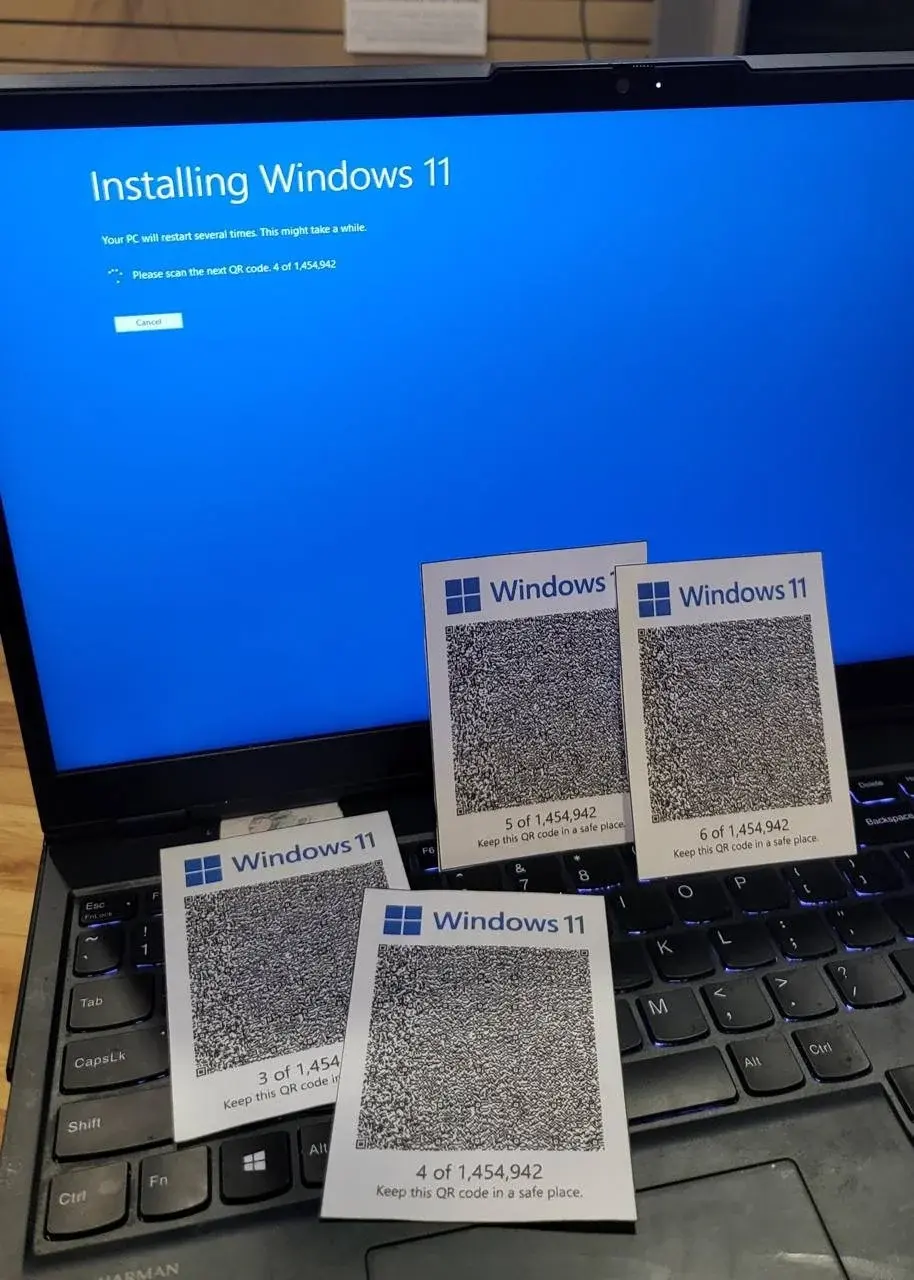Using 1,454,942 maximum size and minimum error correction QR codes in alphanumeric mode (byte mode is a lie) to store Base64-encoded binary data, you get roughly 4,687,823,124 bytes. 4.6 GB. If the cards are two-sided we get 9.2 GB.
Minimum size of Windows 11 installer image seems to be 8 GB, so it checks out!
